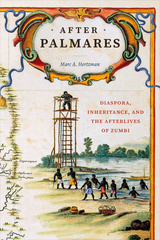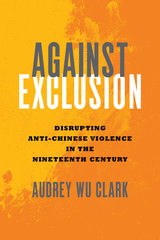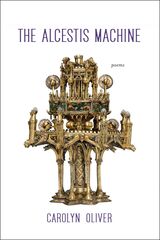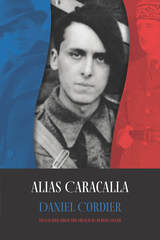6 start with B start with B
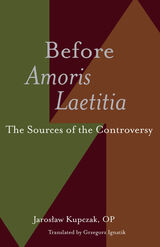
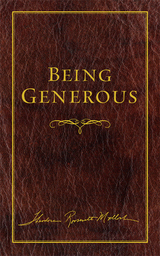
Through the ages, the world’s cultures and great religions have in profound, though different, ways sought to answer the big question: how should we live? Part of the answer has to do with how we ought to treat others, particularly those who are most in need. Ample evidence suggests that giving selflessly to others lies at the heart of what it means to be a thoughtful and moral human being. In Being Generous, author Theodore Roosevelt Malloch leads an exploration of this important concept of generous giving.
He begins by examining how generosity fits into the various spiritual traditions, philosophical schools, and economic systems. Further chapters illustrate how generosity need not always be about money, showing how it might also involve the sharing of time and talent. Elsewhere, Malloch explores the science behind generosity, looking, for example, at the relationship between various chemicals in the brain and generous behavior. Beyond the theory and the science of generosity, readers will also find a wealth of inspiration in a collection of profiles of past and present icons of generosity.
Being Generous concludes with a practical action plan that lays out concrete steps to guide readers toward lives of greater giving.

A breakthrough in the theology of parenthood, integrating Catholic social thought and social scientific studies of child well-being in order to offer a more diverse and inclusive interpretation
The Catholic Church has a long and diverse history of tolerating various child-rearing arrangements. The dominant Catholic framework for conceptualizing parenthood, however, is highly influenced by concerns over sexual ethics and gender norms. While sexual and reproductive ethics are important, the present consensus that theological consideration of parenthood necessarily hinges on these matters diverts attention from actual parenting practices in their social and cultural contexts. In reality, kinship and caregiving are often negotiated in complex ways.
In Beyond Biology, Jacob M. Kohlhaas uses a historical and interdisciplinary theological method that engages both analytically and appreciatively with tradition to sketch a broader Catholic anthropology of parenthood. Kohlhaas’s identification of interpretive options within the Catholic tradition creates room for meaningful, intellectually convincing, and theologically rich responses to challenges facing Catholic parents and families today.
By marshaling the diversity of the Christian tradition and exploring contemporary research in the social sciences and humanities, Kohlhaas frames a theological conversation on parenthood as parenthood—considering the needs and well-being of children as well as the potentials and capabilities of adult caregivers. In his discussion, Kohlhaas considers adoption and nonbiological parenthood, fathers as primary caregivers and nurturers, caregiving by siblings and grandparents, and communal parenting and coparenting beyond the spousal pair. In Kohlhaas’s view, conceptions of parenthood should be guided by the meaning of Christian kinship rooted in baptism as well as concern for the actual caregiving capacities of adults and the needs of children.
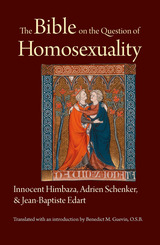
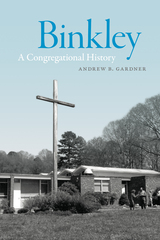
Established in 1958 in the college town of Chapel Hill, North Carolina, the Olin T. Binkley Memorial Baptist Church immediately sought to establish a welcoming religious community—focusing initially on bringing in both Black and White congregants and, as ideas about inclusivity developed, on accepting all people, regardless of identity. By naming itself for a theologically progressive preacher and professor, the fledgling church signaled a perspective unfamiliar to Baptists in the South, which gave the church a radical edge. The church’s first pastor, Robert Seymour, also possessed a progressive vision that resonated with his congregants and pushed them to commit to justice and equality. Soon after its founding, the church strived to challenge inequality in segregated Chapel Hill. Although it remained predominantly White well into the twenty-first century, Binkley evolved to become increasingly aware of issues of gender equality, equity, LGBTQ inclusion, and climate justice. Addressing these issues was Binkley’s way of building God’s kingdom on earth as it is in heaven.
Binkley: A Congregational History tells the story of a single church with a complicated past, demonstrating that, while liberal in heritage, it operated with an unconsciously White, heteronormative worldview that slowly evolved into a distinct expression of faith. The author also draws on scholarship within the broader field of American religious history to position Binkley—with all its complexities, conflicts, and nuances—within the broader context of twentieth-century liberal Protestantism. Perhaps most importantly, Gardner tells the story of a place animated by a vision of Christianity that is often overlooked or drowned out by larger and louder Christian groups. He compellingly shows how this progressive vision of Christianity has shaped Binkley’s commitment to its community and beyond.

Composed at a time when Robert H. Kirven was coping with the terminal illness of his wife, A Book about Dying affirms that the universal fear of death is eased by knowing what comes after. Using the unique Swedenborgian perspective of the afterlife and his own hard-earned knowledge of the day-to-day realities of caring for a loved one, Kirven writes of the spiritual experiences of the dying and of the survivors; offers practical advice on measure that can lessen the burden on the sick and the caregiver; and convincingly asserts that "for patient and survivor alike, living really does continue after dying."
READERS
Browse our collection.
PUBLISHERS
See BiblioVault's publisher services.
STUDENT SERVICES
Files for college accessibility offices.
UChicago Accessibility Resources
home | accessibility | search | about | contact us
BiblioVault ® 2001 - 2024
The University of Chicago Press


